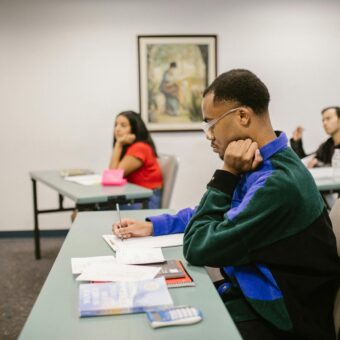
By Uzma Gilani, Lecturer in Health & Social Care Management, Module Leader, PAT Coordinator, and Designated Safeguarding Lead. FSB Digbeth
“The standard you walk past is the standard you accept.”
Lieutenant General David Morrison
In the evolving landscape of higher education, safeguarding is no longer a background consideration it is a frontline responsibility, central to the ethical and educational mission of any institution. Universities and colleges are not merely sites of academic development; they are human environments where safety, dignity, and trust must be actively protected.
Safeguarding in this context spans far more than policy documents or compliance checklists. It includes preventing and addressing harassment, sexual misconduct, bullying, discrimination, mental health crises, domestic abuse, and online exploitation issues that can deeply impact student welfare and undermine the integrity of the learning environment.
At FSB, we believe safeguarding is a matter of institutional integrity and leadership. It demands visible, coordinated action that places student wellbeing at the heart of decision-making. This means going beyond minimum obligations to foster a culture where inappropriate behaviour is never normalised, and where survivors are met not with scepticism or silence but with compassion, action, and justice.
From Policy to Practice: Taking Safeguarding Seriously
We understand that the true measure of safeguarding is not in policy statements, but in the everyday experiences of students and staff. Our safeguarding framework is embedded across the institution from governance structures and reporting systems to staff development and student support pathways.
Recently, all Designated Safeguarding Leads (DSLs) at FSB underwent specialist training on supporting survivors of harassment and sexual misconduct. This training reinforced the need for trauma-informed, survivor-centred responses and approaches that acknowledge the emotional and psychological impact of such experiences, and provide clear pathways to support and protection.
We are committed to making sure our safeguarding leads are not only trained in procedure, but also prepared to respond with empathy, clarity, and resolve.
A Culture That Empowers and Protects
Safeguarding is not just a reactive responsibility, it is a proactive culture. It requires that staff can recognise early warning signs, that students feel confident and safe in speaking up, and that institutional leadership is courageous enough to challenge silence, stigma, and outdated norms.
It also requires an intersectional lens recognising that vulnerabilities may be intensified by factors such as gender, race, sexuality, disability, and socio-economic status. We are committed to tailoring support in ways that are inclusive, respectful, and equitable for all students.
Ethical Leadership in Action
This work is grounded not only in professional ethics but in law. Statutory frameworks such as the Equality Act 2010 and the Human Rights Act 1998 provide strong legal backing for our safeguarding work but the real power lies in how we bring these values to life, every day.
We see safeguarding not just as a regulatory duty but as a moral imperative, a standard that defines our credibility as educators and our integrity as a community. It is about institutional courage: the willingness to challenge what is tolerated, to protect those who may feel voiceless, and to create an academic culture where harm has no place to hide.
The Way Forward
We are under no illusion that safeguarding work is ever ‘complete’. It is a continuous, evolving effort that requires listening, leadership, and learning. We will continue to review our policies, invest in staff development, and strengthen our reporting and response mechanisms to ensure that our institution remains not only compliant but caring, ethical, and safe.
Let us lead with principle. Let us build spaces where dignity is non-negotiable, where protection is proactive, and where silence is never mistaken for safety.
Because safeguarding is not just everyone’s responsibility—it is everyone’s right.
References
Equality Act 2010. UK Public General Acts. Available at: https://www.legislation.gov.uk/ukpga/2010/15/contents (Accessed: Accessed: 4 August 2025)
Human Rights Act 1998. UK Public General Acts. Available at: https://www.legislation.gov.uk/ukpga/1998/42/contents (Accessed: 4 August 2025).
Morrison, D. (2013) Chief of Army message regarding unacceptable behaviour [Video]. Australian Army YouTube channel. Available at: https://www.youtube.com/watch?v=QaqpoeVgr8U (Accessed: Accessed: 4 August 2025).
